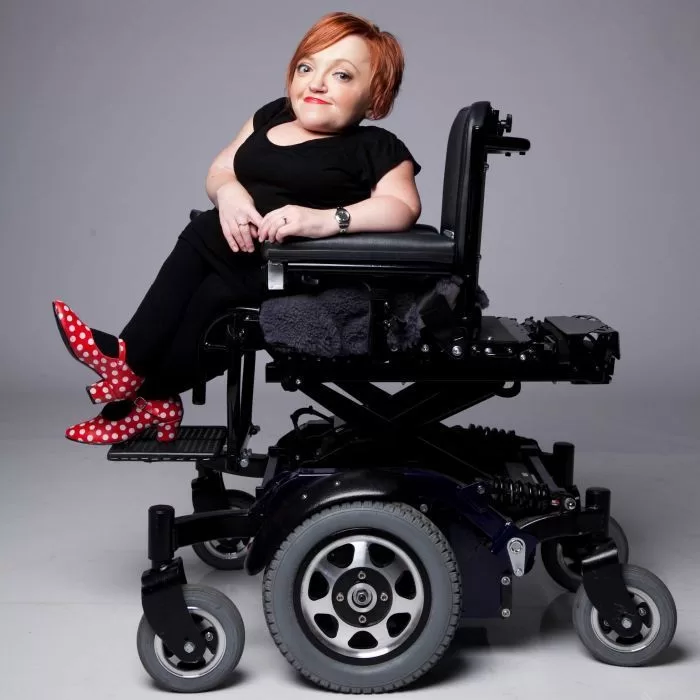Updated on May 11, 2025

Anxiety is a common mental health condition affecting millions worldwide, including Australians. The question of whether Anxiety is considered a disability in Australia is crucial for understanding the rights and protections afforded to individuals suffering from this condition.
In Australia, a mental health condition is considered a disability if it significantly limits a person’s ability to perform daily activities.
This article explores the classification of Anxiety as a disability in Australia.
Is Anxiety A Disability in Australia?
The concept of disability in Australia is multifaceted.
The Disability Discrimination Act (DDA) of 1992 defines disability as “a physical, sensory, intellectual, psychiatric or psychological impairment, or a combination of those impairments that significantly limits a person’s capacity to perform a range of everyday activities.”
This definition acknowledges the diverse nature of disabilities and emphasizes their impact on daily life as a key factor.
Psychosocial disabilities can encompass a range of mental health conditions. Some examples include mood disorders (bipolar disorder, major depressive disorder), anxiety disorders, personality disorders, psychotic disorders, neurodevelopmental disorders (autism spectrum disorder), and substance use disorders.
When Does Anxiety Become a Disability?
Not all cases of Anxiety meet the criteria for a disability under Australian law. While everyone experiences Anxiety to some degree, a diagnosis of an anxiety disorder alone doesn’t necessarily qualify as a disability.
The severity of the condition and its impact on daily life are important factors.
Under the DDA, Anxiety can be considered a disability if it significantly impacts an individual’s ability to perform everyday activities.
The condition must be long-term, lasting or expected to last for at least six months, and substantial in its impact.
For Anxiety to be considered a disability, it must be:
- Diagnosed by a qualified mental health professional: A diagnosis ensures a proper understanding of the specific anxiety disorder and its severity.
- Long-term: The condition must be expected to last for at least twelve months.
- Significantly limiting: Anxiety must demonstrably hinder a person’s ability to perform everyday activities, such as work, education, self-care, or social interaction.
Anxiety and Disability
Severe anxiety disorders can be classified as psychosocial disabilities. This means the disability arises from the interaction between a mental health condition and the social environment.
Psychosocial disabilities can limit a person’s ability to participate in everyday activities that others may take for granted.
These limitations might include:
- Managing stress: Anxiety can make it difficult to cope with stress in various settings like home, work, or social situations.
- Concentration: Focusing on tasks at hand becomes challenging due to heightened worry and Anxiety.
- Social Interaction: Engaging with family, friends, or social settings can be difficult due to Anxiety.
- Multitasking: Anxiety can make it hard to manage multiple tasks simultaneously.
It’s important to remember that not all anxiety disorders qualify as disabilities. The severity of the condition and its impact on daily life determine the classification.
It’s best to discuss this with your doctor or mental health professional.
Implications for People with Anxiety
Recognising Anxiety as a disability carries significant implications for the affected people, particularly regarding their rights and the accommodations they are entitled to in the following settings:
- Employment: Employers are required to make reasonable adjustments to accommodate employees with Anxiety and ensure they can perform their jobs effectively. This may include flexible work hours, remote working options, or modifications to the work environment.
- Education: Educational institutions must provide reasonable adjustments to support students with Anxiety, such as extended deadlines, alternative assessment methods, or additional support services.
- Public Services: Service providers must ensure their services are accessible to individuals with Anxiety, which may involve offering alternative communication methods or providing a calm and supportive environment.
Legal Protection and Support Programs
Australians with anxiety-related disabilities are entitled to legal protections and support programs.
- The DDA: The Disability Discrimination Act protects people with disabilities from discrimination in different areas, such as employment, education, and access to services. This means employers have a responsibility to provide reasonable adjustments to accommodate an employee’s anxiety disorder.
- The National Disability Insurance Scheme (NDIS): The NDIS is a government-funded program supporting eligible Australians with disabilities. People with anxiety disorders may be eligible for NDIS funding if their condition is deemed a “psychosocial disability” that significantly impacts their lives. To qualify for NDIS funding, an assessment process is required to determine the severity and impact of the Anxiety.
- Healthcare Services: Access to healthcare services is crucial for managing Anxiety. This includes general practitioners, psychologists, psychiatrists, and specialized mental health services. Medicare provides rebates for mental health consultations and treatments.
- Mental Health Programs: Programs like Beyond Blue and Headspace offer resources, support groups, and counselling services for individuals with Anxiety. These organizations also work to raise awareness and reduce the stigma associated with mental health conditions.
- Community Support: Local community health centres and non-profit organizations often provide support groups and activities that help individuals with Anxiety connect with others and manage their condition.
- Disability Employment Services (DES): DES is a program that helps people with disabilities find and keep a job. People with anxiety disorders may be eligible for support through DES programs, which can assist with job search, interview skills development, and workplace modifications.
Resources and Support for Anxiety Management
In Australia, numerous resources exist to assist people in coping with Anxiety and enhancing their overall wellness.
- Mental health professionals: Psychologists, psychiatrists, and other mental health professionals can provide evidence-based therapies like cognitive behavioural therapy (CBT) to manage anxiety symptoms.
- Beyond Blue: This national organization provides information and support for people experiencing Anxiety and depression.
- Lifeline: This crisis support service offers 24/7 phone counselling for people in distress, including those struggling with Anxiety.
- Headspace: This organization provides youth mental health services, including support for anxiety disorders.
Conclusion
In conclusion, Anxiety can be considered a disability in Australia under the Disability Discrimination Act 1992 if it significantly impairs an individual’s daily life and is long-term. Recognizing Anxiety as a disability ensures that individuals receive the necessary legal protections and support to manage their condition effectively.
Access to healthcare services, reasonable adjustments in various settings, and support from schemes like the NDIS are crucial for enabling individuals with Anxiety to lead fulfilling lives.
Understanding and acknowledging Anxiety as a disability not only helps individuals receive the support they need to reduce the stigma associated with mental health conditions.
As awareness and acceptance grow, more individuals with Anxiety can access the resources and accommodations necessary to thrive in their personal and professional lives.
Looking for reliable and trustworthy care services?
At Centre Disability Support, we offer tailored support services for individuals with disabilities throughout Australia. We offer housing options in Logan, Ipswich and Brisbane areas, where we provide independent supported living or assist individuals in finding suitable options for individualised living.
Additionally, we provide day-to-day support for individuals with mental health issues, complex behaviour and other types of disabilities. We also have support coordinators available to assist with planning, navigating NDIS plans, and offering casework support.
Whether you’re seeking support for yourself, or a loved one, or simply wish to learn more about our services, we’re here to help.
Sources
- https://lifelift.com.au/ndis-for-anxiety-disorder/
- https://thesaltfoundation.org.au/ndis-blog/mental-health/is-mental-health-a-disability-australia/
MORE FROM CENTRE DISABILITY SUPPORT
Is Endometriosis a Disability in Australia?
Is Bipolar Disorder a Disability?
IS FIBROMYALGIA A DISABILITY IN AUSTRALIA?
IS AUTISM A DISABILITY IN AUSTRALIA?
IS TOURETTES A DISABILITY IN AUSTRALIA?
IS OSTEOARTHRITIS A DISABILITY IN AUSTRALIA?



